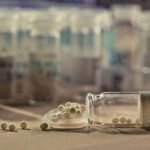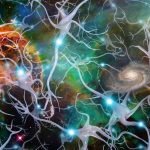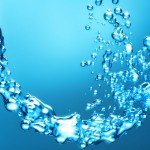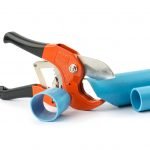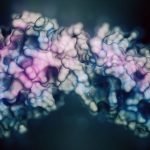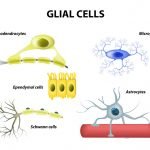Controversy with Recent Father Kneipp Article on PubMed
Father Kneipp is still making headlines in the medical literature, even 120 years after his death. A recent article, in Korean, which only the abstract is available in English, discusses the historical elements of Father Sebastian Kneipp (1821-1897) and nature cure in shaping naturalism and modern medicine in Germany.1 Germany, and many other European countries, have a long history of using mineral waters and baths, contrast bathing, mud and other nature cure elements in the treatment of a wide array of diseases. In many European countries these “spa” treatments are taken very seriously by the medical community and utilized by the public as both primary and preventative medical interventions. In some areas, spa treatments -the use of balneotherapy- is by prescription only.
Father Kneipp’s Past Struggles Are Similar to Ours Today
This abstract brings attention to 2 considerations which Father Kneipp supposedly struggled with during his lifetime, which we are still very much struggling with in ours. The first is in regard to medication and vaccination. The abstract points out that Father Kneipp set himself apart significantly, and gathered increasing appreciation of nature cure from the dominant medical community of his day, by not renouncing the employment of vaccinations and medications.
False Favor to Father Kneipp
While this may bring favor to Father Kneipp in conventional circles of today, it may be completely false. Sussanna Czeranko, ND, rare books curator at the National University of Natural Medicine disagrees that Father Kneipp supported the use of medications or vaccinations. With perhaps the most extensive knowledge of early naturopathic and water cure history, Dr. Czeranko’s take on controversy is that “Kneipp abhorred the practices of drug dispensing doctors and never have I seen his name in support of vaccination.”
Kneipp’s Recognition Through Cooperation
The abstract also briefly accounts for Father Kneipp’s interest and intention to be recognized through cooperation with medical doctors who supported his treatment – the Kneipp Cure utilized 5 structural elements: hydrotherapy, exercise, nutrition, herbalism, and mind/body balance. The Korean abstract maintains that the result of this cooperation was that Kneipp was accepted into the medical community despite the controversy between the modern medicine and nature cure movements. This may be a contributing factor to the widespread acceptance of nature cure and spa therapy in Germany, and Europe in general.
Historical Context Consideration
Regardless of the truth behind this controversy, it is fascinating that these questions and decisions are still very much a part of naturopathic medical culture. Perhaps considering them in a historical context may help with our individual and collective in answering them.
Source
- Ko Y. Sebastian Kneipp and the Natural Cure Movement of Germany: Between Naturalism and Modern Medicine. Uisahak. 2016;25(3):557-590.
Image Copyright: <a href=’https://www.123rf.com/profile_gameover’>gameover / 123RF Stock Photo</a>
 Node Smith, associate editor for NDNR, is a fifth year naturopathic medical student at NUNM, where he has been instrumental in maintaining a firm connection to the philosophy and heritage of naturopathic medicine amongst the next generation of docs. He helped found the first multi-generational experiential retreat, which brings elders, alumni, and students together for a weekend campout where naturopathic medicine and medical philosophy are experienced in nature. Three years ago he helped found the non-profit, Association for Naturopathic ReVitalization (ANR), for which he serves as the board chairman. ANR has a mission to inspire health practitioners to embody the naturopathic principles through experiential education. Node also has a firm belief that the next era of naturopathic medicine will see a resurgence of in-patient facilities which use fasting, earthing, hydrotherapy and homeopathy to bring people back from chronic diseases of modern living; he is involved in numerous conversations and projects to bring about this vision.
Node Smith, associate editor for NDNR, is a fifth year naturopathic medical student at NUNM, where he has been instrumental in maintaining a firm connection to the philosophy and heritage of naturopathic medicine amongst the next generation of docs. He helped found the first multi-generational experiential retreat, which brings elders, alumni, and students together for a weekend campout where naturopathic medicine and medical philosophy are experienced in nature. Three years ago he helped found the non-profit, Association for Naturopathic ReVitalization (ANR), for which he serves as the board chairman. ANR has a mission to inspire health practitioners to embody the naturopathic principles through experiential education. Node also has a firm belief that the next era of naturopathic medicine will see a resurgence of in-patient facilities which use fasting, earthing, hydrotherapy and homeopathy to bring people back from chronic diseases of modern living; he is involved in numerous conversations and projects to bring about this vision.




